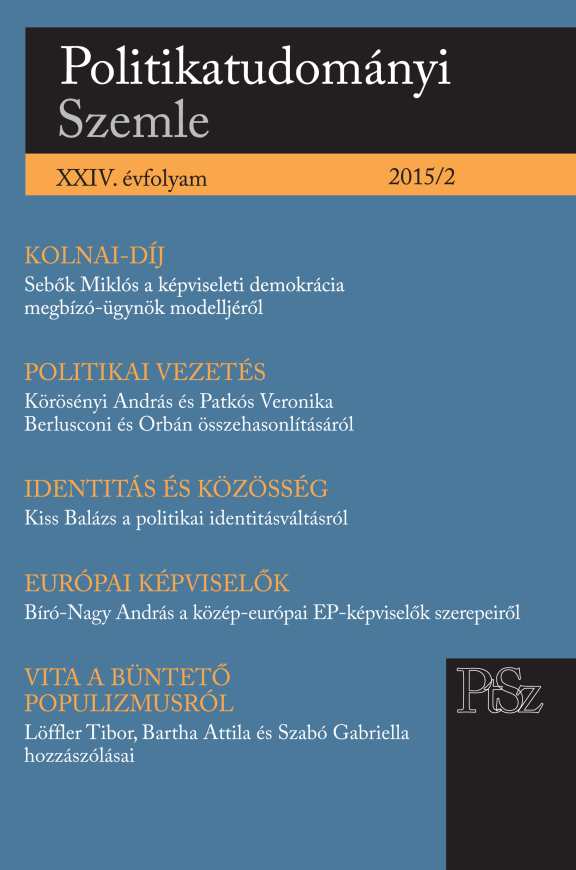A képviseleti demokrácia megbízó-ügynök elméleti modellje
The Theoretical Principal-Agent Model of Representative Democracy
Author(s): Miklós SebőkSubject(s): Politics / Political Sciences
Published by: MTA Politikai Tudományi Intézete
Keywords: Representative democracy; principal-agent theory, delegation; separation of powers;
Summary/Abstract: The article presents the canonical version of the principal-agent model of representative democracy. Following the conventions of the review article genre, key concepts are discussed including the delegate-representative-trustee typology and the consequences of the contractual relations such as asymmetric information, moral hazard and adverse selection. Based on these concepts the delegation chain is presented as the general model of representative democracy. Three phases of the chain are scrutinized in more detail. The electoral connection between citizens and parties, the separation of powers between the branches and parties and bureaucratic delegation are singled out as pivotal elements. The Conclusion highlights such anomalies of the principal-agent framework as multilevel and complex contracts, between-election responsiveness and representation as advocacy.
Journal: Politikatudományi Szemle
- Issue Year: XXIV/2015
- Issue No: 2
- Page Range: 7-26
- Page Count: 20
- Language: Hungarian

